| Srl | Item |
| 1 |
ID:
060108
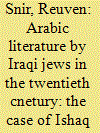

|
|
|
| 2 |
ID:
039982
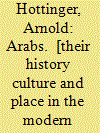

|
|
|
|
|
| Publication |
London, Thames and Hudson, 1963.
|
| Description |
344p.Hbk
|
|
|
|
|
|
|
|
|
|
|
|
Copies: C:1/I:0,R:0,Q:0
Circulation
| Accession# | Call# | Current Location | Status | Policy | Location |
| 000903 | 909.04927/HOT 000903 | Main | On Shelf | General | |
|
|
|
|
| 3 |
ID:
129541
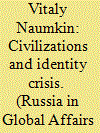

|
|
|
|
|
| Publication |
2014.
|
| Summary/Abstract |
One would think that proponents of the Eurasian choice would seek to build bridges between Russia and the Islamic world, but they often manifest biased attitudes towards the Muslim civilization as such. In the light of developments in the contemporary world, the subject of "civilizations" is becoming ever more popular and interesting both for authors - researchers and commentators - and readers. The issues of cultural/civilizational identity, the nature of relationships between values ??of different regional/cultural clusters, and vectors of nation states' evolution amid an increasing hyper-globalization are becoming increasingly relevant and require a fundamental theoretical rethinking.
|
|
|
|
|
|
|
|
|
|
|
|
|
|
|
|
| 4 |
ID:
144866
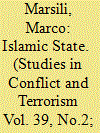

|
|
|
|
|
| Summary/Abstract |
This study analyzes the political reasons that allowed the Islamic State to expand successfully in Syria and Iraq, by enabling to “franchise” worldwide, and the role of the regional governments in this issue. The article provides a different explanation from the classic approach of the “clash of civilizations” theorized by Samuel P. Huntington, ascribing responsibility for the growth and expansion of the Islamic State to the complex framework of geopolitical alliances within the Muslim civilization and the Arab world. The article highlights the attempt by Turkey to establish itself as a regional power and guidance of the Islamic world, by resurrecting the Caliphate, and, based on this, explains the contrast with the Islamic State, whose goal is the foundation of a globalized Caliphate. The plans of the Turkish President Erdoğan for a Great Turkey, allied with Egypt, have foundered with the coup that ousted the Muslim Brotherhood from power. The study relates the connection of Ankara with the Kurds, regarding the management of the crisis in Syria and Iraq, and the Turkish liaison with regional powers (Iran, Egypt, Saudi Arabia, and Israel) and other powers (Russia, China, and the United States).
|
|
|
|
|
|
|
|
|
|
|
|
|
|
|
|
| 5 |
ID:
132514
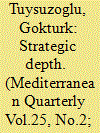

|
|
|
|
|
| Publication |
2014.
|
| Summary/Abstract |
The change in Turkish foreign policy in the twenty-first century's second decade has its origin in the approach referred to by Turkish foreign minister Ahmet Davutoglu as Strategic Depth. Because it aims to give Turkey status as a Eurasian power, this approach has been described as neo-Ottomanism, referencing the geographic extent of the Ottoman Empire. Because of its intrinsic pragmatism and the geographical region that is its focus, Strategic Depth has been influenced by Eurasianist thought in Russia. But the Strategic Depth approach differs from Russian Eurasianist ideas because it refuses to place itself in conflict with Western civilization and instead positions Turkey as a bridge between Western and Muslim civilizations. To this extent, Strategic Depth may be described as a conservative interpretation of Turkish Eurasianism.
|
|
|
|
|
|
|
|
|
|
|
|
|
|
|
|